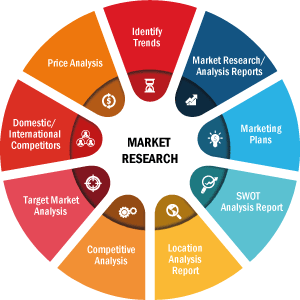Data management is a prevailing opportunity in a connected car arena. The connected cars stream massive amounts of data into the cloud, and thus to utilize extensive data, the need for predictive analysis and data analysis is expected to grow. Predictive maintenance, predictive collision avoidance, automotive marketing, automotive marketing, and data management of connected cars are among the growing concepts responsible for the growth of the market. For instance, Nissan has developed a predictive collision avoidance system with the help of big data, advanced sensors, and vehicle-to-vehicle connectivity. This system can judge the distance and speed of the vehicle in front of a car and of the preceding two vehicles. Also, a video and an audible signal will be sent to the driver in case of any unusual behavior. Therefore, with the huge benefit of a predictive collision avoidance system, the automotive industry might witness a sophisticated and effective collision avoidance system based on predictive driver behavior as the developers are working ahead to create apps for improving communication between the connected vehicles.
The auto manufacturers and tech companies are involved in the development of sophisticated technologies that enable automobiles to drive themselves. In the race of testing self-driving vehicles, Google is leading the race, followed by Audi, Toyota, and Mercedes-Benz. Moreover, the Institute of Electrical and Electronics Engineers (IEEE) foresees that the self-driving vehicles will approximately account for up to 75% of vehicles on the road by 2040. The self-driving car industry is anticipated to benefit the car-sharing services such as Zipcar, taxi services, public transportation, and rental car companies. In addition to the rising emergence of self-driving vehicles, changing government regulations and collaborations are some of the major trends that would support transforming the automotive industry. Regulations such as the EU, Canada, and China are passing legislation and functioning on frameworks that encompass rules around occupancy requirements, electrification, reporting requirements, and considerations for land use and transit planning. Due to government regulations made for the safety of drivers and passengers, there are at least 47 cities globally that is piloting self-driving cars in the current scenario. The factors as mentioned earlier for self-driving vehicles are forecasted to impact the entire automotive industry and the technology companies for the development of more advanced car technologies.
Predictive Vehicle Technology Market
Predictive Vehicle Technology Market Size and Forecast (2021–2031), Global and Regional Share, Trend, and Growth Opportunity Analysis Report Coverage: Hardware (ADAS, Telematics, OBD); Vehicle Type (Commercial Vehicle, Passenger Car); Application (Proactive Alerts, Safety and Security), Geography
Predictive Vehicle Technology Market Overview by 2031
Download Free Sample
Contact Us
Phone: +1-646-491-9876
Email Id: sales@theinsightpartners.com